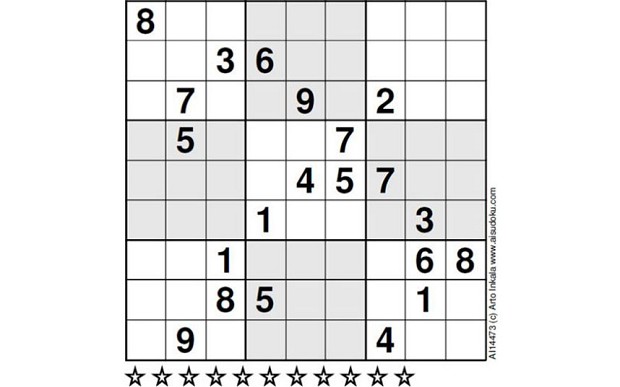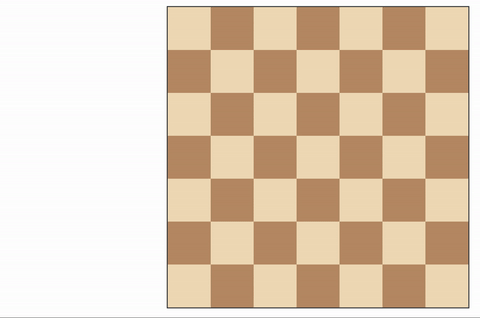Udacity AI Nanodegree
I like going over a complete course as it helps cement content in the brain. That’s also one of the strongest benefit of mentoring and teaching. It forces you to review material and education is a lot about
repetition. In this first review I will look at the following online course I’ve done recently :
AI Nanodegree
 Ke Jie Go champion 2017 defeated by AlphaGo
Ke Jie Go champion 2017 defeated by AlphaGo
With all the hype surrounding artificial intelligence I felt the need to go a bit further than machine learning (ML). Maybe not as much as I’m focusing on ML but at least to get some degree of comprehension and knowledge. Neural Networks, traditional ML and many other methods aiming to model a stochastic problem are all over the news, in online courses, discussion forums etc. But it is self evident for anyone working on ML or studying it that this knowledge is certainly not able to build all things that we consider artificial intelligence. The word “consider” here is important since the definition is always changing and is a source of debate around coffee machines: “Is matrix multiplication in a neural network really intelligence ?”. That philosophical question is even addressed in one of the lecture. I wanted to know more about the field in general rather than the ML part. What exactly is operations research ? How Google Maps work ? How to optimize schedules ? Production ? etc.
This is what this course mostly addresses and why I became interested. Let’s view a quick intro of the content :
- Constraint satisfaction problems
- Some problems have constraint to respect. That part of the program uses constraint propagation and domain knowledge
to build an agent that can solve a Sudoku problem. Simply put, when you have constraints like a Sudoku game, you can use these constraints to
reduce the search domain. This speeds up search tremendously. This intro part creates some pretty impressive Sudoku solvers and if you think you are good
at Sudoku try to solve this ? The very simple algorithm built solves it in a second.

Hardest Sudoku, source - Project : Build a Sudoku solver
- Some problems have constraint to respect. That part of the program uses constraint propagation and domain knowledge
to build an agent that can solve a Sudoku problem. Simply put, when you have constraints like a Sudoku game, you can use these constraints to
reduce the search domain. This speeds up search tremendously. This intro part creates some pretty impressive Sudoku solvers and if you think you are good
at Sudoku try to solve this ? The very simple algorithm built solves it in a second.
- Search, Optimization and planning
- This part of the course focuses on tree searches algorithms (Breadth first, depth first, A*) and symbolic logic to build agents that
try to achieve a defined goal state in the most efficient ways possible. The search algorithms are tried on a Pacman game: make an agent able to
eat all the dots with an effective path. You can find the code for this agent here: https://github.com/arroqc/Pacman_agent.

Pacman AI
Then later on the course you tackle problem closer to reality. How to plan a network of planes and cargos to achieve a defined goal of cargos being at the right destination in as little plane trips as you can ? - Project : Build a forward planning agent
- This part of the course focuses on tree searches algorithms (Breadth first, depth first, A*) and symbolic logic to build agents that
try to achieve a defined goal state in the most efficient ways possible. The search algorithms are tried on a Pacman game: make an agent able to
eat all the dots with an effective path. You can find the code for this agent here: https://github.com/arroqc/Pacman_agent.
- Adversarial search
- This time the goal is to beat another player. The course therefore focuses here on games where two players are involved and how an
agent can search for the solution with the most potential for winning. It focuses mostly around the minimax algorithm
(and improvements like iterative deepening). The idea behind minimax is fairly simple. The agent must maximize its winning potential
while taking into account that during adversary turns (when searching for a good move) the adversary will instead pick a move that minimizes our agent chances of winning.

The first player to no longer be able to move loses. - Project : Build an agent that plays isolation game where both players have a chess piece and try to isolate the other player.
- This time the goal is to beat another player. The course therefore focuses here on games where two players are involved and how an
agent can search for the solution with the most potential for winning. It focuses mostly around the minimax algorithm
(and improvements like iterative deepening). The idea behind minimax is fairly simple. The agent must maximize its winning potential
while taking into account that during adversary turns (when searching for a good move) the adversary will instead pick a move that minimizes our agent chances of winning.
- Fundamentals of Probabilistic Graphical models
- This part is making the bridge to another area I know better: machine learning. It is quite a formality if you are already comfortable with
probabilities and machine learning. All previous agents always evolve in a fully observable
deterministic universe however many problems are stochastic. It explores bayesian nets and hidden Markov models.
The subjects here (PGM) can probably be explored even further in Daphne Koller course on coursera. On the subject of Natural Language Processing though, I enjoyed the one from the advanced Machine Learning
better as it focuses on deep learning techniques and felt more up to date (and obviously covers more content).

Bayesian Network for diagnosis Source - Project : Part of speech tagging. In a sentence, build a model that can recognize and put tags on each words.
- This part is making the bridge to another area I know better: machine learning. It is quite a formality if you are already comfortable with
probabilities and machine learning. All previous agents always evolve in a fully observable
deterministic universe however many problems are stochastic. It explores bayesian nets and hidden Markov models.
The subjects here (PGM) can probably be explored even further in Daphne Koller course on coursera. On the subject of Natural Language Processing though, I enjoyed the one from the advanced Machine Learning
better as it focuses on deep learning techniques and felt more up to date (and obviously covers more content).
Who is the course for ?
The whole course uses Python programming. The exercises/projects throw code at you with not that much explanations and you will have to dig
into the code given to understand what the different classes and methods do in order to be able to code the agents. There is no step by step
instructions most of the time and you are given an empty function for an algorithm (and the pseudo code) and therefore must manage to construct the algorithm.
It’s a bit frustrating having to wrap your head around it first but as you poke the classes and fiddle with the code a bit, I always managed
after a few hours to understand what I was supposed to be doing.
You need a pretty solid base in Python (or at least another object oriented language). I found the time investment to be reasonable depending
on how hard you find the problems I guess. Also a lot of the materials is optional readings so your time investment will vary depending on how
much you want to get out of the course.
So now what did I think of the course ?
Pros:
- I found the offer rather unique and good tools to add in my toolbox
- Demanding projects and exercises
- The community is excellent. The channels well organized for discussions and the instructors very present to answer questions. I also found a lot of tips and help just reading or speaking with other students. In comparison, I usually find the Coursera forums rather empty and not very active.
Cons:
- Rather expensive for an online course
- The videos are not that great sometimes and some material is rushed. You need to compensate by reading the source material.
The book used by this course is Artificial Intelligence, a Modern Approach by Russel and Norvig.
